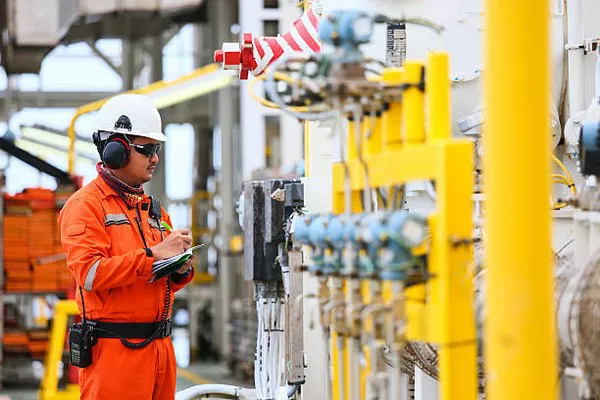In the realm of industrial machinery and pneumatic systems, air compressors play an indispensable role. These devices are instrumental in converting power into potential energy stored in pressurized air, which finds application in various sectors ranging from manufacturing and construction to healthcare and automotive industries. Among the diverse types of air compressors available, the oilless air compressor stands out as a specialized variant with distinct advantages and applications. In this comprehensive guide, we delve into the workings, advantages, limitations, and applications of oilless air compressors.
What is an Oilless Air Compressor?
An oilless air compressor, also known as an oil-free compressor, is a type of air compressor that operates without the need for lubricating oil in the compression chamber. Traditional air compressors utilize oil to lubricate moving parts, reduce friction, and seal internal components. However, oilless compressors employ alternative mechanisms to achieve lubrication-free operation, making them ideal for applications where oil contamination is a concern.
Operating Principles
The fundamental principle behind the operation of an oilless air compressor involves eliminating the need for oil in the compression chamber while maintaining efficient performance. This is achieved through various mechanisms, including:
Non-Lubricated Compression: Oilless compressors feature specialized components, such as piston rings, bearings, and seals, that are designed to operate without the need for lubricating oil. Materials with low friction coefficients and high wear resistance, such as PTFE (polytetrafluoroethylene) and composite materials, are commonly used to reduce friction and ensure smooth operation.
Dry Compression: Unlike lubricated compressors where oil is injected into the compression chamber to seal and cool moving parts, oilless compressors rely on dry compression techniques. This involves utilizing materials and coatings that can withstand high temperatures and pressures without the need for external lubrication.
Advanced Cooling Systems: Oilless compressors often incorporate sophisticated cooling systems to dissipate heat generated during compression. Efficient heat dissipation helps prevent overheating of critical components and ensures long-term reliability.
Advantages of Oilless Air Compressors
Oilless air compressors offer several advantages over their lubricated counterparts, making them suitable for specific applications where oil contamination or maintenance concerns are paramount. Some key advantages include:
Oil-Free Air: Perhaps the most significant advantage of oilless compressors is the production of oil-free compressed air. This makes them ideal for applications where even trace amounts of oil contamination are unacceptable, such as in pharmaceutical manufacturing, food processing, and electronics production.
Low Maintenance: Eliminating the need for lubricating oil simplifies maintenance requirements for oilless compressors. There is no need for regular oil checks, changes, or oil filtration systems, reducing downtime and operational costs.
Cleaner Environment: Oilless compressors contribute to a cleaner working environment by minimizing the risk of oil spills, leaks, and airborne oil particles. This is particularly beneficial in indoor settings where air quality and cleanliness are paramount.
Compact and Lightweight: Oilless compressors are often more compact and lightweight compared to their lubricated counterparts, making them suitable for portable or space-constrained applications.
Reduced Contamination Risk: In industries such as healthcare, pharmaceuticals, and electronics manufacturing, avoiding oil contamination is critical to product quality and regulatory compliance. Oilless compressors mitigate the risk of contamination, ensuring consistent and reliable performance.
Limitations and Considerations
While oilless air compressors offer numerous advantages, they also have certain limitations and considerations that should be taken into account:
Higher Initial Cost: Oilless compressors typically have a higher upfront cost compared to lubricated compressors due to the use of specialized materials and manufacturing processes.
Limited Duty Cycle: Some oilless compressors may have a limited duty cycle compared to lubricated models, particularly in high-demand applications. Continuous operation at maximum capacity may lead to overheating and premature wear of components.
Increased Noise Levels: Oilless compressors may produce higher noise levels during operation compared to lubricated compressors, primarily due to the absence of oil dampening vibrations and reducing friction.
Potential for Higher Operating Temperatures: Without the cooling effect of oil, oilless compressors may experience higher operating temperatures during prolonged use. Adequate cooling systems and thermal management are essential to prevent overheating and ensure long-term reliability.
Specialized Maintenance Requirements: While oilless compressors generally require less maintenance than lubricated models, they may have specialized maintenance requirements, such as periodic replacement of wear components like piston rings and seals.
Applications of Oilless Air Compressors
Oilless air compressors find application across a wide range of industries and sectors where oil-free compressed air is essential. Some common applications include:
Medical and Healthcare: Oilless compressors are widely used in medical and healthcare facilities for applications such as medical air supply, respiratory therapy equipment, and surgical instruments sterilization.
Food and Beverage Processing: In the food and beverage industry, maintaining hygienic conditions and preventing contamination are paramount. Oilless compressors provide clean, oil-free compressed air for various processes such as pneumatic conveying, packaging, and bottling.
Electronics Manufacturing: Oilless compressors play a crucial role in electronics manufacturing processes where even minute oil contamination can compromise product quality and reliability. They are used for PCB (printed circuit board) assembly, semiconductor fabrication, and cleanroom environments.
Laboratories and Research Facilities: Laboratories and research facilities require oil-free compressed air for analytical instruments, chromatography, and other sensitive applications where sample integrity is essential.
Automotive Painting and Finishing: In automotive painting and finishing applications, oilless compressors are preferred to avoid oil contamination, which can affect paint adhesion and surface finish quality.
See Also What Is The Function Of Reciprocating Compressor
Conclusion
Oilless air compressors represent a specialized category of compressors that offer distinct advantages in terms of cleanliness, reliability, and suitability for oil-free applications. By eliminating the need for lubricating oil in the compression chamber, these compressors provide a reliable source of oil-free compressed air for critical applications across various industries. While they may have higher initial costs and specialized maintenance requirements, the benefits they offer in terms of air quality, reliability, and environmental cleanliness make them indispensable in sectors where oil contamination is unacceptable. As technology advances and demand for oil-free compressed air grows, oilless compressors are expected to play an increasingly vital role in diverse industrial applications.

